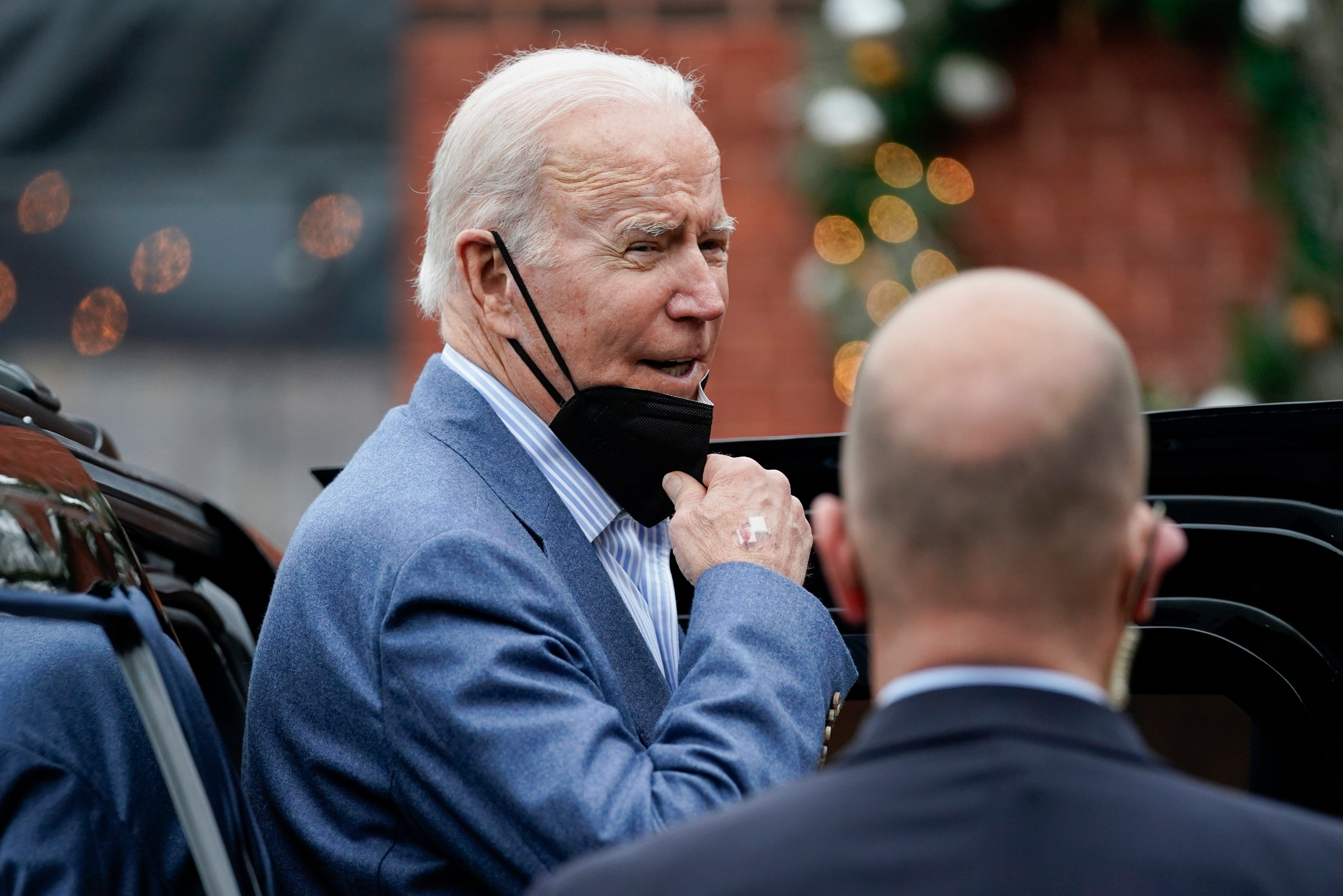Biden conferring with Ukraine's leader over Russian buildup
President Joe Biden is resuming his telephone diplomacy over the Russian troop buildup near its border with Ukraine, coordinating with Ukraine's leader on strategy to de-escalate a crisis that Moscow says could rupture ties with Washington

Your support helps us to tell the story
From reproductive rights to climate change to Big Tech, The Independent is on the ground when the story is developing. Whether it's investigating the financials of Elon Musk's pro-Trump PAC or producing our latest documentary, 'The A Word', which shines a light on the American women fighting for reproductive rights, we know how important it is to parse out the facts from the messaging.
At such a critical moment in US history, we need reporters on the ground. Your donation allows us to keep sending journalists to speak to both sides of the story.
The Independent is trusted by Americans across the entire political spectrum. And unlike many other quality news outlets, we choose not to lock Americans out of our reporting and analysis with paywalls. We believe quality journalism should be available to everyone, paid for by those who can afford it.
Your support makes all the difference.President Joe Biden is resuming his telephone diplomacy over the Russian troop buildup near its border with Ukraine coordinating with Ukraine's leader on strategy to de-escalate a crisis that Moscow says could rupture ties with Washington.
Biden's planned call Sunday with President Volodymyr Zelenskyy comes as the United States has made little progress in efforts to persuade Russia's Vladimir Putin to ease tensions.
Biden, who spoke with Putin for nearly an hour on Thursday, told reporters that next day that he warned Putin that his economy would pay a “heavy price” if Russia, which has massed some 100,000 troops near the border, made further moves against Ukraine.
U.S. and Russian officials say deep differences remain about finding a resolution.
“I’m not going to negotiate here in public, but we made it clear that he cannot -- I emphasize cannot -- move on Ukraine,” Biden said Friday.
Biden and Zelenskyy were expected to discuss preparations for a series of upcoming diplomatic meetings to address the crisis, according to the White House Zelenskyy tweeted that the presidents would use the call to “coordinate our steps for the sake of peace in Ukraine and security in Europe.”
Representatives from U.S. and Russia are set to hold talks on Jan. 9-10 in Geneva. To follow are Russia-NATO Council talks and a meeting of the Organization for Security and Co-operation in Europe.
Biden said he told Putin it was important for the Russians to take steps before those meetings toward easing the crisis. Putin's foreign affairs adviser, in describing the presidents' conversation this past week, said Biden's pursuit of sanctions “could lead to a complete rupture of relations between out countries and Russia-West relations will be severely damaged.”
Kremlin officials also stressed they want guarantees that any future expansion of NATO must exclude Ukraine and other former Soviet countries. The Russians have demanded that the military alliance remove offensive weaponry from countries in the region.
The White House and European allies have said that the Russian demands are nonstarters. U.S. intelligence findings indicate Russia has made preparations for a potential invasion in early 2022. But White House officials say it remains unclear whether Putin has already made a decision to move forward with military action.
Still, Biden said he remained hopeful for the upcoming talks. White House officials say they will consult closely with Western allies
"I always expect if you negotiate you make progress, but we’ll see,” he said Friday. ”We’ll see.”
Past military incursions by Putin loom large as Biden weighs his next steps.
In 2014, Russian troops marched into the Black Sea peninsula of Crimea and seized the territory from Ukraine. Russia’s annexation of Crimea was one of the darker moments for President Barack Obama on the international stage.
The U.S.-Russia relationship was badly damaged near the end of President George W. Bush’s administration after Russia’s 2008 invasion of its neighbor Georgia after Georgian President Mikheil Saakashvili ordered his troops into the breakaway region of South Ossetia.
Rep. Adam Schiff chairman of the House Intelligence Committee, said Sunday he feared that Putin was intent on invading Ukraine and “nothing other than a level of sanctions that Russia has never seen will deter him.”
“Russia needs to understand we are united in this,” Schiff told “Face the Nation" on CBS. ”I also think that a powerful deterrent is the understanding that if they do invade, it is going to bring (NATO) closer to Russia, not push it farther away.